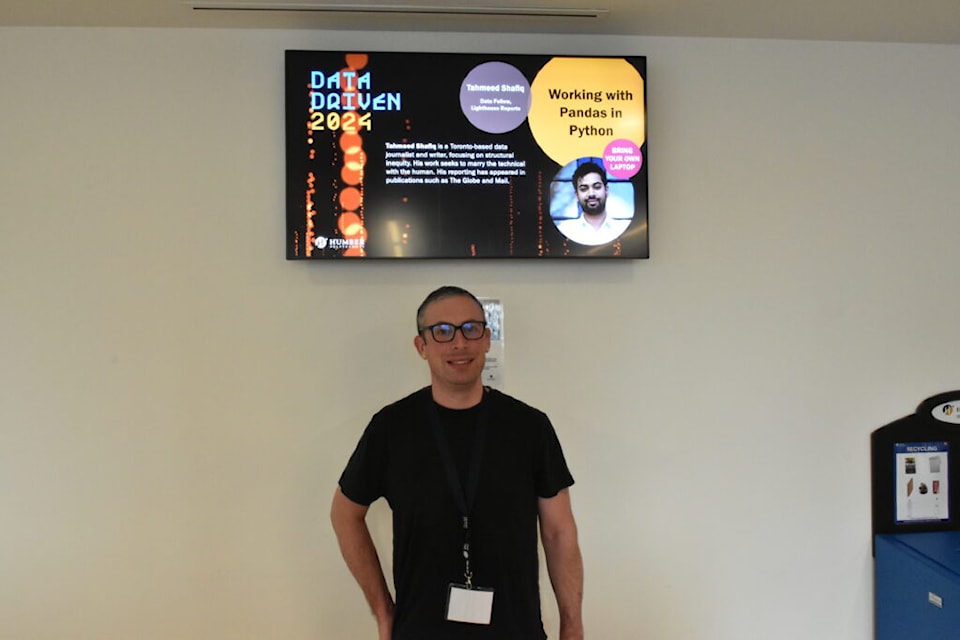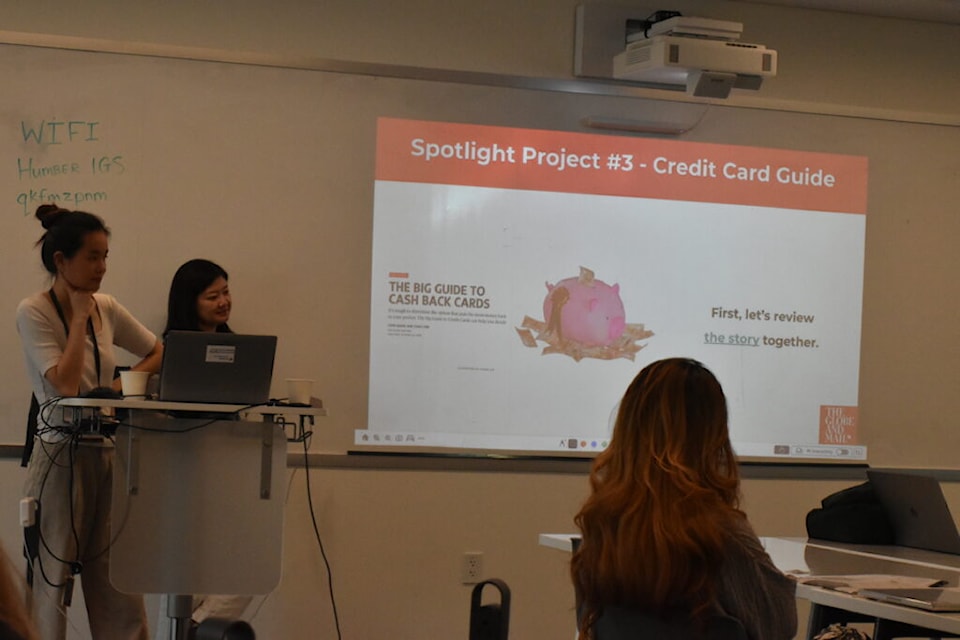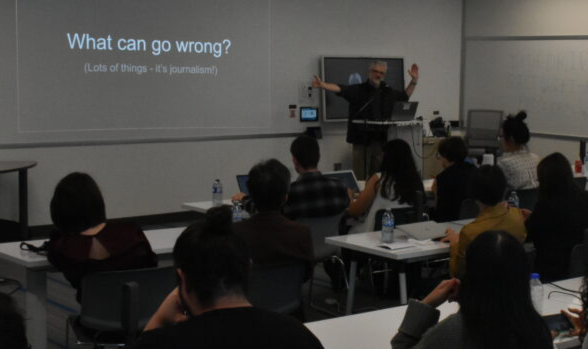Humber Story Lab hosted its seventh annual Humber Data-Driven symposium, where data science meets journalism. The event brought together data journalists from various platforms to give Humber students an opportunity to get practical information to enhance their storytelling skills by analyzing and using data. The event took place on Wednesday, Oct. 23, at Humber’s International Graduate School, 59 Hayden St.
David Weisz is a Knowledge and Mobilization Specialist at Humber Research and Innovation. He is responsible for handling information about the office’s various grants and research projects. Humber Research and Innovation works with organizations to solve challenges in social innovation, sustainable architecture research, and management.
Weisz is also the founder of Humber’s Data Driven. It is an annual conference for journalists to upgrade their skills in data analysis and presentation for stories. The idea came to him while he was teaching in the journalism program at the Faculty of Media, Creative Arts and Design.
Weisz says he saw a lack of data journalism conferences in Canada compared to the U.S., and that’s how he developed the idea of the Humber conference.

“I went to the National Institute of computer-assisted reporting, an annual conference in the U.S. for three full days with 1000 people all over the world. There was nothing really like this in Canada so I brought the idea to the Humber dean, with support of the associate dean at the time. The first one came together at Humber Lakeshore campus,” Weisz said.
This year’s conference had a packed agenda touching several areas of data science. The event started with breakfast, followed by three different simultaneous workshops from Canadian data journalists from 9:35 a.m. to 12:35 p.m. The first one featured open-source tools for tech solutions in doing research, presented by Bellingcat’s Galen Reich and Giancarlo Fiorella.
The second workshop featured a crash course in using pandas, a tool built on top of the Python programming language. This workshop was open to beginners of Python coding, presented by Tahmeed Shafiq, data fellow at Lighthouse Reports and freelance journalist Xavi Richer Vis.
The final workshop featured Globe and Mail data journalists Chen Wang and Yang Sun. They took participants through how they use advanced formulas on Google sheets for three published data articles.

Wang was presenting for the first time, while this year was Sun’s fourth at the conference. Wang says she thought it was important to participate because Canada lacks the data science component to upgrade journalists’ skills.
“There’s just a lack of these types of programs in Canada. Seven years ago, when I wanted to change my career I couldn’t find a structured data journalism program, so I had to go to the U.S. Today I think the situation remains the same,” Wang said.
The workshops and sessions were followed by lunch and then “show and tell” presentations by several more data journalists to end this year’s symposium. Harnoor Kaur is a third-year journalism student who stayed for the entire event and was part of the Google Sheets workshop.
“I think it was very informative, I never realized there were lots of open-source datasets you can use to draw meaningful conclusions. I also love the fact that many budding and current journalists can get together and talk about issues that matter to society but from a perspective of data,” says Kaur.
For people who missed the event, the Humber StoryLab website archives the agendas and speakers for past events for anybody who wants to catch up with the Canadian data journalism community.



